Manuscript proposals: [email protected] / 0745 204 115 //// Tracking orders Individuals / Sales: 0745 200 357 / Orders Legal entities: 0721 722 783
Publisher: Editura Universitară
Author: Alin Les
Edition: I
Pages: 206
Publisher year: 2023
ISBN: 978-606-28-1594-3
DOI: 10.5682/9786062815943
Product Code:
9786062815943
Do you need help?
0745 200 357
- Description
- Download (1)
- Authors
- Content
- More details
- Reviews (1)
About the volume "Rationalia Psychanalyticum" by Alin Les
by Roxana Melnicu
Anyone who is honest with his own thinking and anyone who is devoted to the passion of introspection knows that the freshest form of manifestation of thought is by no means the system, but is that flash of an idea that translates literary into fragmentary writing. Its history begins with the experience we traditionally have with the pre-Socratics reinvented by Nietzche, and, closer to us, with the fragmentation of Mircea Eliade and the aphorisms of Emil Cioran.
Precisely because of the freshness, we find this style in the fundamental authors of psychoanalysis, culminating with Lacan.
In what is called scientific psychology, this style is, by definition, less common, but that is precisely why the vitality of Alin Les's thinking, interfered by multiple cultural landmarks that naturally intervene, is to be appreciated. It is a freshness that does not belong either to psychology, nor to psychoanalysis, nor strictly to philosophy, but is fueled by each of these sciences (I dare say even arts).
Philosophy knows dialectics - respectively the controversy between thesis and antithesis, as well as their synthesis.
Psychoanalysis knows the dialectic of drives. Freud clearly stated that duality is inherent in instinctual starts, no matter how he chose to name and formulate (inevitably secondary!) these starts.
Psychology knows cognitive-affective dissonance - which we could define as that psychological trigger, that discomfort from which culture is born, which will force the emergence of a transition or synthesis.
Without this effort of the spirit that defines culture, we fall into dissolution - embodied by the contemporary concept of dissociation; basically, it is a traumatic destructuring.
Reading Alin Les's book is a therapy in itself and a comforting confirmation of a thought alive and impregnated by culture, an exhortation to lucidity and creativity, to the courage of controversy, opposed in turn to a threatening world of memes.
Bucharest, March 2023
***
Rationalia Psychanalyticum resulted as a natural proposal to highlight that real and apparent contradictions must be evaluated by appealing to rationality. This is the only way to understand their processuality, dynamics and the discourse behind it. In a way, the thoughts settle down and, inevitably, a self-analysis appears. Finding an analytical voice can be another unexpected effect of the book, because the stakes of what is debated are entirely personal. If we were looking for an onolithic style, it cannot be stated precisely. But I think that these notes rather emphasize the dynamics of an analytical style that I am working on, without being fully aware of it. Consequently, the summary of the book could be decoded in the following form: when contradictions put reason at the service of introspection, I believe that there is still hope for an abyss rationally explained through psychoanalysis and the rest of science. What leads to the idea that modal dialectics can be not only a nonconformist response to introspection (self-analysis), empirical observation, sublimation, the study of contradictions (micro and macro conflicts), but also part of a possible future analytical model, other than the one expressed by dialectical-behavioral therapy.
Author
by Roxana Melnicu
Anyone who is honest with his own thinking and anyone who is devoted to the passion of introspection knows that the freshest form of manifestation of thought is by no means the system, but is that flash of an idea that translates literary into fragmentary writing. Its history begins with the experience we traditionally have with the pre-Socratics reinvented by Nietzche, and, closer to us, with the fragmentation of Mircea Eliade and the aphorisms of Emil Cioran.
Precisely because of the freshness, we find this style in the fundamental authors of psychoanalysis, culminating with Lacan.
In what is called scientific psychology, this style is, by definition, less common, but that is precisely why the vitality of Alin Les's thinking, interfered by multiple cultural landmarks that naturally intervene, is to be appreciated. It is a freshness that does not belong either to psychology, nor to psychoanalysis, nor strictly to philosophy, but is fueled by each of these sciences (I dare say even arts).
Philosophy knows dialectics - respectively the controversy between thesis and antithesis, as well as their synthesis.
Psychoanalysis knows the dialectic of drives. Freud clearly stated that duality is inherent in instinctual starts, no matter how he chose to name and formulate (inevitably secondary!) these starts.
Psychology knows cognitive-affective dissonance - which we could define as that psychological trigger, that discomfort from which culture is born, which will force the emergence of a transition or synthesis.
Without this effort of the spirit that defines culture, we fall into dissolution - embodied by the contemporary concept of dissociation; basically, it is a traumatic destructuring.
Reading Alin Les's book is a therapy in itself and a comforting confirmation of a thought alive and impregnated by culture, an exhortation to lucidity and creativity, to the courage of controversy, opposed in turn to a threatening world of memes.
Bucharest, March 2023
***
Rationalia Psychanalyticum resulted as a natural proposal to highlight that real and apparent contradictions must be evaluated by appealing to rationality. This is the only way to understand their processuality, dynamics and the discourse behind it. In a way, the thoughts settle down and, inevitably, a self-analysis appears. Finding an analytical voice can be another unexpected effect of the book, because the stakes of what is debated are entirely personal. If we were looking for an onolithic style, it cannot be stated precisely. But I think that these notes rather emphasize the dynamics of an analytical style that I am working on, without being fully aware of it. Consequently, the summary of the book could be decoded in the following form: when contradictions put reason at the service of introspection, I believe that there is still hope for an abyss rationally explained through psychoanalysis and the rest of science. What leads to the idea that modal dialectics can be not only a nonconformist response to introspection (self-analysis), empirical observation, sublimation, the study of contradictions (micro and macro conflicts), but also part of a possible future analytical model, other than the one expressed by dialectical-behavioral therapy.
Author
-
Rationalia Psychanaliticum
Download
ALIN LES
Foreword by Roxana Melnicu, editor-in-chief of Psychologies Romania magazine / 11
Introduction / 13
2021: June 24 – December 30
Rational contradictions I / 23
2022: January 1 – June 28
Rational contradictions II / 119
Bibliographic references / 201
Introduction / 13
2021: June 24 – December 30
Rational contradictions I / 23
2022: January 1 – June 28
Rational contradictions II / 119
Bibliographic references / 201
Dialectic is defined as the science that is divided into words and meanings, that is, into things that are talked about and words that are used to talk (Augustin, 1991, p. 15). My notes begin from this Augustinian logic. If these notes have a purpose, it is to invite you into a dialectic about what we hear today as success, loyalty, conflict, genius, Judas syndrome, impostor syndrome, capitalism and others. Basically, these notes are based on my thoughts, images, concepts, mental states and mental representations. The implication of their mental sum and the explanation in a contradictory but rational way give what I call - through the logic of the work De Dialectica of Blessed Augustine, of the existentialist dialectic and of Hegel's dialectic, known for the "speculative mode of knowledge" to generate views more sophisticated later - modal dialectic. According to the Stanford Encyclopedia of Philosophy, this "speculative way of knowing" is called "positively rational" and assumes "the unity of the opposition between the first two determinations, or is the positive result of the dissolution or transition of those determinations." Therefore, "the movement towards new determinations is driven by the nature of the previous determinations and thus "produces itself". Hegel's conception of dialectics takes into account the following aspect: "Subsequent concepts replace, but also preserve, earlier concepts". In the present case, I and the Other, respectively the Self-stater become the Self-stater I, respectively the Other-self-stater. The Self-stating Self replaces the Self-stating Other as a new concept, and the Self-stating Other remains active within the definition of the Self-stating Self concept. Practically, each Self-stating Self can be what it is as a Self-stating Self only in relation to an "Other" who is the same Self-stating that it is, that is, the Self-stating Self . From the perspective of existentialist dialectics, for example, the genius and the world will (or not) make a good house. But the drama of the genius remains, because as Ortega Y Gasset states, a woman who wants brilliant children does not necessarily want to live with a genius. It is only one aspect of the investigation of genius. The Hegelian imprint in Rationalia Psychanalyticum emphasizes precisely the dialectical (contradictory) character of my thinking, in the sense that the world is a process of self-development of the Idea, itself determined by its own internal contradictions. It results in an osmosis of dialectical contradictions, from which I believe that the individual genius has the most to gain.
At first reading, my notes (or, at least, some of them) would seem illogical, but upon closer inspection, I hope that you, the reader, will be able to decipher the rational from certain psychoanalytical, social concepts and treated through psychoanalysis . The analyzes can cause you, at first reading, contradictions and I firmly believe that you cannot be blamed in any way for this. On the other hand, if you have the patience to read, you will discover rationality in the less accessible corners of the mind, hence the effect of what I call rational contradictions. Belief in the coexistence of contradictions is essential to understand (and accept) new explanatory dimensions. In this sense, the main protagonists who inspired my notes are the Blessed Augustin (just mentioned), Mircea Eliade, Sigmund Freud, Ludwig Wittgenstein, Irvin Yalom, Emil Cioran, Nancy McWilliams and Pascal Bruckner. Let's take them in turn.
Mircea Eliade inspired me in choosing the title. I carry with me in my backpack and briefcase Fragmentarium - a book of his that is less known to the public. The title of my book comes from this "fragmentarium", a sum of articles and fragments published over time. In my case, Rationalia Psychanalyticum contains notes made in a notebook with red covers between May 2021 and June 2022.
From Freud I clarified the meanings of sublimation. I think that sublimation is one of the most successful defense mechanisms. This was also stated by Otto Fenichel. I was able to understand the three directions or meanings of sublimation from reading the dictionary of psychoanalysis, under the coordination of Roland Chemama, published by Univers Enciclopedic Gold (2009): "Sublimation and sexual impulse" [a) ], "Sublimation and the ideal by me" [ b) ] and "The problem of the vacuum"
[ c) ] (pp. 340‑342). In short, Freud states at point a) that the individual sublimates the energy of sexual drives and gives them a name from a scientific, cultural, artistic point of view. Sublimation would basically be a higher-order defense mechanism, that is, with multiple social benefits. Not having the possibility of sexual satisfaction, the individual would convert all this energy from himself into socially acceptable forms. At point b), the emphasis is on the fact that there is a vulnerability of this ability to sublimate. Practically, the Ego's libido is withdrawn and it is directed, non-sexually, towards other objects (goals, activities) with a non-sexual character (gymnastics, fashion, art, Formula 1, etc.). More concretely, the increased level of libido is redirected towards evacuation through certain psycho-socio-behavioral ways, depending on the local culture. Regarding the "Problem of the vacuum", i.e. point c), we are left to understand that everything that entails the demands of the civilization that we have come to internalize, more or less, ends up producing dissatisfaction at the instinctual level. What happens then? The resulting vacuum - i.e. sublimation - converts to a symbolic level everything that was not normally integrated into our lives until then. The theme of symbolism is somehow specific to other formidable psychoanalysts, Jacques Lacan and Melanie Klein. Assimilation at the symbolic level becomes the basis of the fantasy, so the process of creation and sublimation will take care that the internal and external reality with which the person comes into contact is as significant as possible. All in all, in order to understand even better what sublimation is, I propose a broader and, at the same time, more understandable definition: "Destiny of the drive characterized by the displacement from its original sexual purpose and the transformation of the object. Sublimated instinctual objects and goals allow overcoming intrapsychic conflicts and are accepted or valued by the socius (society). Sublimation can be considered a successful defense" (Le Guen, 2018, p. 1097). Thus, I see the essential contribution of sublimation in the existentialist, Hegelian and Augustinian dialectic of my unsystematized reflections (McWilliams, 2020, p. 154).
I was inspired by Wittgenstein regarding mental representations. It is known that, in the Blue Notebook (Editura Humanitas, 2005) - hereafter referred to as the Notebook, the philosopher uses the word "representation" twice: on pages 95 and 100. On page 95, "representation" starts from the idea that the object our thought would be a shadow of his image. Our mind's eye imagines something, which can be compared with the object imagined by us following the description or with something similar. In this sense, part of my thoughts transposed in Rationalia Psychanalyticum are the expression of mental health coordinates at a symbolic level. I am not saying that imagining something or something similar to what I want to transpose would cure you of something specific, but that the mental representation resulting from my description can disinhibit your creativity process. I do not claim that my texts have a healing power upon simple reading. But I think that, with the help of imagination, the text could contribute to the state of mindfulness of your mind. Then, the other meaning of representation starts from the idea of "mental processes", i.e. from the way in which an idea, respectively an image, is constructed. The connection between them and language is indisputable, which makes it easy to identify in the 2013 edition of the Notebook (p. 28). The fact that our language is generated by the appearance of signs, and these signs would be dead without mental processes, makes me conclude that the ideas in my texts had this intentional unconscious explanation of their appearance.
Yalom inspired me by reading the book Ephemeris. I understood that I can also feel reason like Yalom, Cioran or Eliade, but that not always the mood, the genius and the necessary environment allow me to put the idea to rest. Despite some pandemic restrictions, but also a decision to relocate, I was left with the thought of Yalom as a mountaineer of writing.
Regarding Cioran, the style from Razne is "responsible" for the stylistic form in which the Rationalia Psychanalyticum appears. It reminds me of Camus's Notebooks (Rao, 2014), in which the ideas are not numbered. I preferred the same style, even though I initially adopted the numbered style, thinking that I could have some type of control over the text. I opted for a fluent flow, by including the data.
I discovered Nancy McWilliams through the two books published by "Fundatia Generatia": Psychoanalytic diagnosis. Personality structures revealed in the clinical process (2015) and Psychoanalytic Psychotherapy. Guide for Practitioners (2021). Two of her texts made me sublime on various subjects. The first one I liked: "I can talk about what seems authentic to me. I have always liked to put into words ideas that many others have thought, but very few have managed to articulate". The second text that touched me is this: "I think the common principle of all psychodynamic perspectives seems to be that the more honest we are with ourselves, the more likely we are to live full and satisfying lives." There are two texts that bear witness to the pattern of the type of truth to which I have accustomed my existence.
To some extent, Pascal Bruckner's style of expression also gave me an impetus for such writing. In The Paradox of Love, published by Trei (2015), Bruckner has some sentence-like passages that catch on very well when reading. These are like a pneumatic hammer: they stop you from writing and make you think.
Rationalia Psychanalyticum resulted as a natural proposal to highlight that real and apparent contradictions must be evaluated by appealing to rationality. This is the only way to understand their processuality, dynamics and the discourse behind it. In a way, the thoughts settle down and, inevitably, a self-analysis appears. Finding an analytical voice can be another unexpected effect of the book, because the stakes of what is debated are entirely personal. If I was looking for an analytical style, it cannot be stated precisely. But I think that these notes rather emphasize the dynamics of an analytical style that I am working on, without fully realizing it. Consequently, the summary of the book could be decoded in the following form: when contradictions put reason at the service of introspection, I believe that there is still hope for an abyss rationally explained through psychoanalysis and the rest of science. Which leads to the idea that modal dialectics can be not only a nonconformist response to introspection (self-analysis), empirical observation, sublimation, the study of contradictions (micro and macro conflicts), but also part of a possible future analytical model, other than the one expressed by dialectical-behavioral therapy.
According to the communication structure of cognitive processes (Mertens, 2018, pp. 160-161 apud Leuzinger, 1981), this notebook is specific to two "contexts": Freud and Cicero. Freud's context emphasizes the introspective and self-reflective processes of both the unconscious and the conscious. The Cicero context refers to the thoughts transposed into words to determine if the receiver (the beneficiary, in general) appreciates the verbalization.
As a reader, you are in the context of Cicero. As an author, I am in the context of Freud. Let's hope we meet!
Bucharest, January 2023
At first reading, my notes (or, at least, some of them) would seem illogical, but upon closer inspection, I hope that you, the reader, will be able to decipher the rational from certain psychoanalytical, social concepts and treated through psychoanalysis . The analyzes can cause you, at first reading, contradictions and I firmly believe that you cannot be blamed in any way for this. On the other hand, if you have the patience to read, you will discover rationality in the less accessible corners of the mind, hence the effect of what I call rational contradictions. Belief in the coexistence of contradictions is essential to understand (and accept) new explanatory dimensions. In this sense, the main protagonists who inspired my notes are the Blessed Augustin (just mentioned), Mircea Eliade, Sigmund Freud, Ludwig Wittgenstein, Irvin Yalom, Emil Cioran, Nancy McWilliams and Pascal Bruckner. Let's take them in turn.
Mircea Eliade inspired me in choosing the title. I carry with me in my backpack and briefcase Fragmentarium - a book of his that is less known to the public. The title of my book comes from this "fragmentarium", a sum of articles and fragments published over time. In my case, Rationalia Psychanalyticum contains notes made in a notebook with red covers between May 2021 and June 2022.
From Freud I clarified the meanings of sublimation. I think that sublimation is one of the most successful defense mechanisms. This was also stated by Otto Fenichel. I was able to understand the three directions or meanings of sublimation from reading the dictionary of psychoanalysis, under the coordination of Roland Chemama, published by Univers Enciclopedic Gold (2009): "Sublimation and sexual impulse" [a) ], "Sublimation and the ideal by me" [ b) ] and "The problem of the vacuum"
[ c) ] (pp. 340‑342). In short, Freud states at point a) that the individual sublimates the energy of sexual drives and gives them a name from a scientific, cultural, artistic point of view. Sublimation would basically be a higher-order defense mechanism, that is, with multiple social benefits. Not having the possibility of sexual satisfaction, the individual would convert all this energy from himself into socially acceptable forms. At point b), the emphasis is on the fact that there is a vulnerability of this ability to sublimate. Practically, the Ego's libido is withdrawn and it is directed, non-sexually, towards other objects (goals, activities) with a non-sexual character (gymnastics, fashion, art, Formula 1, etc.). More concretely, the increased level of libido is redirected towards evacuation through certain psycho-socio-behavioral ways, depending on the local culture. Regarding the "Problem of the vacuum", i.e. point c), we are left to understand that everything that entails the demands of the civilization that we have come to internalize, more or less, ends up producing dissatisfaction at the instinctual level. What happens then? The resulting vacuum - i.e. sublimation - converts to a symbolic level everything that was not normally integrated into our lives until then. The theme of symbolism is somehow specific to other formidable psychoanalysts, Jacques Lacan and Melanie Klein. Assimilation at the symbolic level becomes the basis of the fantasy, so the process of creation and sublimation will take care that the internal and external reality with which the person comes into contact is as significant as possible. All in all, in order to understand even better what sublimation is, I propose a broader and, at the same time, more understandable definition: "Destiny of the drive characterized by the displacement from its original sexual purpose and the transformation of the object. Sublimated instinctual objects and goals allow overcoming intrapsychic conflicts and are accepted or valued by the socius (society). Sublimation can be considered a successful defense" (Le Guen, 2018, p. 1097). Thus, I see the essential contribution of sublimation in the existentialist, Hegelian and Augustinian dialectic of my unsystematized reflections (McWilliams, 2020, p. 154).
I was inspired by Wittgenstein regarding mental representations. It is known that, in the Blue Notebook (Editura Humanitas, 2005) - hereafter referred to as the Notebook, the philosopher uses the word "representation" twice: on pages 95 and 100. On page 95, "representation" starts from the idea that the object our thought would be a shadow of his image. Our mind's eye imagines something, which can be compared with the object imagined by us following the description or with something similar. In this sense, part of my thoughts transposed in Rationalia Psychanalyticum are the expression of mental health coordinates at a symbolic level. I am not saying that imagining something or something similar to what I want to transpose would cure you of something specific, but that the mental representation resulting from my description can disinhibit your creativity process. I do not claim that my texts have a healing power upon simple reading. But I think that, with the help of imagination, the text could contribute to the state of mindfulness of your mind. Then, the other meaning of representation starts from the idea of "mental processes", i.e. from the way in which an idea, respectively an image, is constructed. The connection between them and language is indisputable, which makes it easy to identify in the 2013 edition of the Notebook (p. 28). The fact that our language is generated by the appearance of signs, and these signs would be dead without mental processes, makes me conclude that the ideas in my texts had this intentional unconscious explanation of their appearance.
Yalom inspired me by reading the book Ephemeris. I understood that I can also feel reason like Yalom, Cioran or Eliade, but that not always the mood, the genius and the necessary environment allow me to put the idea to rest. Despite some pandemic restrictions, but also a decision to relocate, I was left with the thought of Yalom as a mountaineer of writing.
Regarding Cioran, the style from Razne is "responsible" for the stylistic form in which the Rationalia Psychanalyticum appears. It reminds me of Camus's Notebooks (Rao, 2014), in which the ideas are not numbered. I preferred the same style, even though I initially adopted the numbered style, thinking that I could have some type of control over the text. I opted for a fluent flow, by including the data.
I discovered Nancy McWilliams through the two books published by "Fundatia Generatia": Psychoanalytic diagnosis. Personality structures revealed in the clinical process (2015) and Psychoanalytic Psychotherapy. Guide for Practitioners (2021). Two of her texts made me sublime on various subjects. The first one I liked: "I can talk about what seems authentic to me. I have always liked to put into words ideas that many others have thought, but very few have managed to articulate". The second text that touched me is this: "I think the common principle of all psychodynamic perspectives seems to be that the more honest we are with ourselves, the more likely we are to live full and satisfying lives." There are two texts that bear witness to the pattern of the type of truth to which I have accustomed my existence.
To some extent, Pascal Bruckner's style of expression also gave me an impetus for such writing. In The Paradox of Love, published by Trei (2015), Bruckner has some sentence-like passages that catch on very well when reading. These are like a pneumatic hammer: they stop you from writing and make you think.
Rationalia Psychanalyticum resulted as a natural proposal to highlight that real and apparent contradictions must be evaluated by appealing to rationality. This is the only way to understand their processuality, dynamics and the discourse behind it. In a way, the thoughts settle down and, inevitably, a self-analysis appears. Finding an analytical voice can be another unexpected effect of the book, because the stakes of what is debated are entirely personal. If I was looking for an analytical style, it cannot be stated precisely. But I think that these notes rather emphasize the dynamics of an analytical style that I am working on, without fully realizing it. Consequently, the summary of the book could be decoded in the following form: when contradictions put reason at the service of introspection, I believe that there is still hope for an abyss rationally explained through psychoanalysis and the rest of science. Which leads to the idea that modal dialectics can be not only a nonconformist response to introspection (self-analysis), empirical observation, sublimation, the study of contradictions (micro and macro conflicts), but also part of a possible future analytical model, other than the one expressed by dialectical-behavioral therapy.
According to the communication structure of cognitive processes (Mertens, 2018, pp. 160-161 apud Leuzinger, 1981), this notebook is specific to two "contexts": Freud and Cicero. Freud's context emphasizes the introspective and self-reflective processes of both the unconscious and the conscious. The Cicero context refers to the thoughts transposed into words to determine if the receiver (the beneficiary, in general) appreciates the verbalization.
As a reader, you are in the context of Cicero. As an author, I am in the context of Freud. Let's hope we meet!
Bucharest, January 2023
If you want to express your opinion about this product you can add a review.

6359.png)
![Rationalia Psychanaliticum [1] Rationalia Psychanaliticum [1]](https://gomagcdn.ro/domains/editurauniversitara.ro/files/product/large/rationalia-psychanaliticum-568264.jpg)
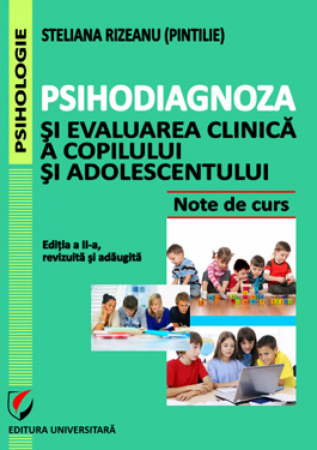

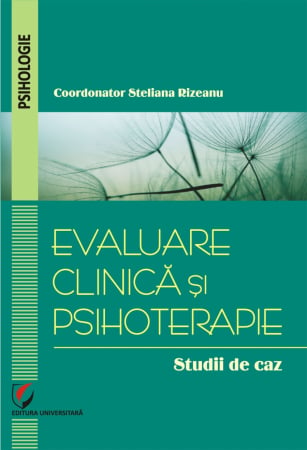


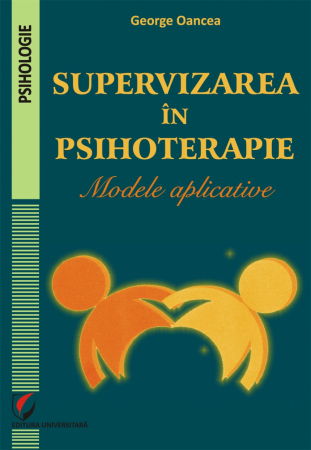


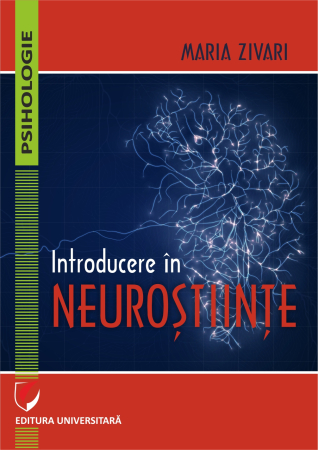
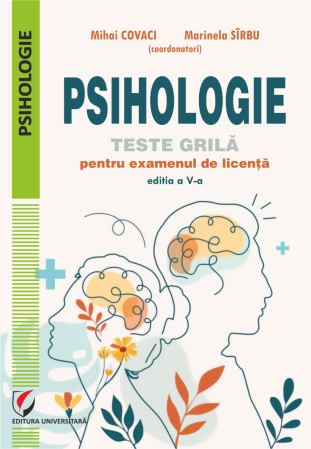
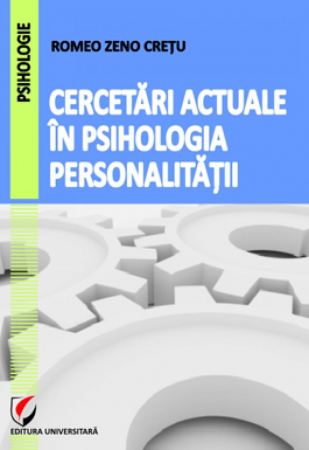

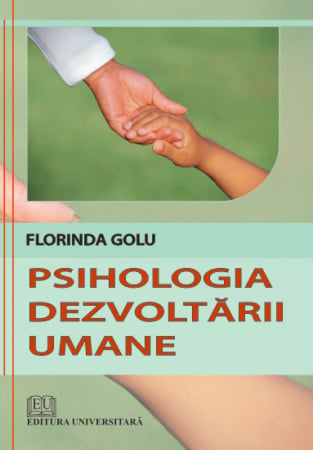
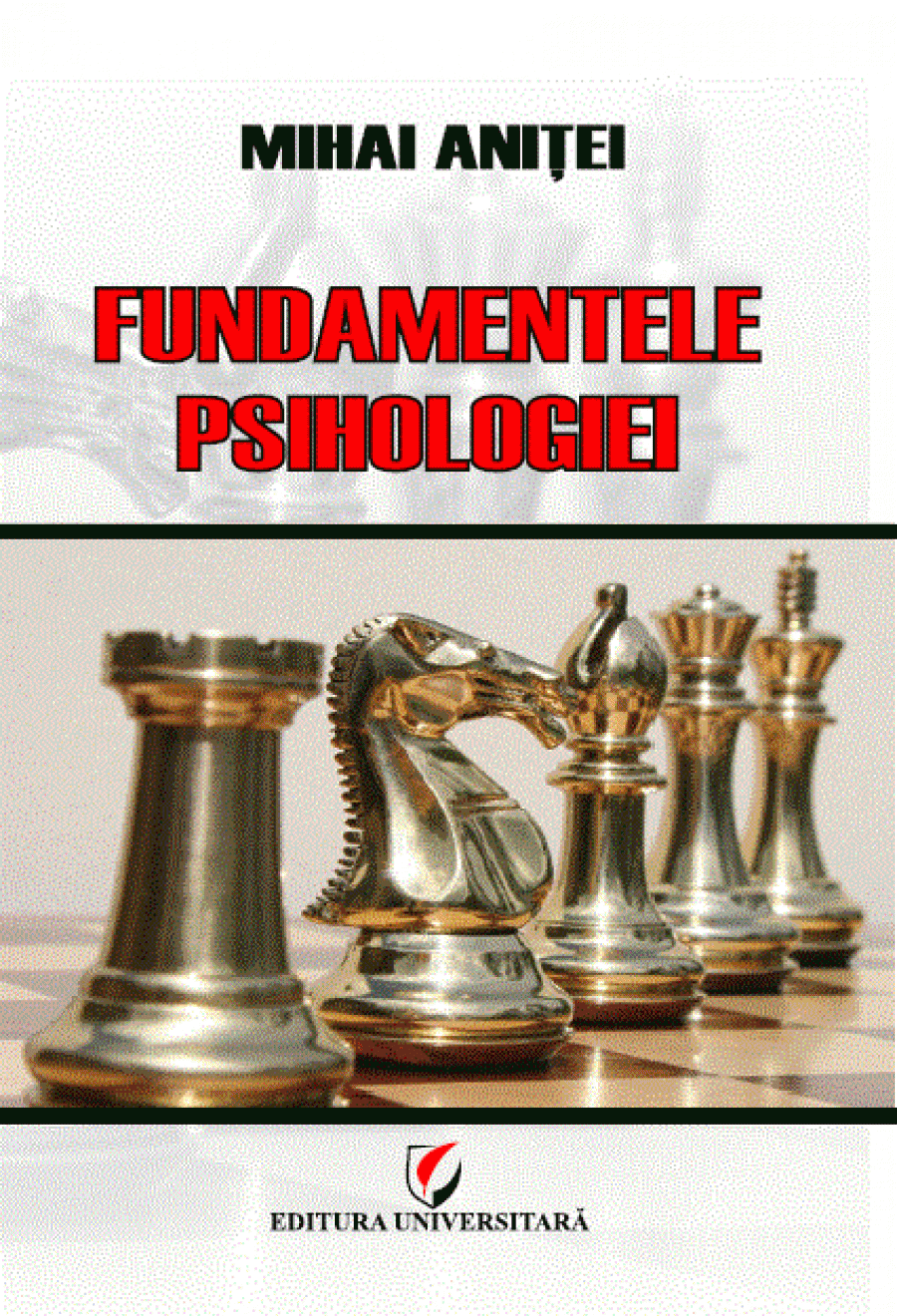

Adriana Silaghi,
Prieten drag, în sfârșit Cartea a ajuns pe noptiera mea.
ReplyDupă prima lectură, îmi dau seama că o voi reciti și, de fiecare dată, voi avea revelații.
Ai har! Continuă să gândești/meditezi și să scrii! Multă lume are nevoie de tine! ❤️❤️❤️
Îți mulțumesc!
Te felicit pentru ceea ce ești și pentru ceea ce faci!
Was this review useful?
1 persoana a considerat acest review util!